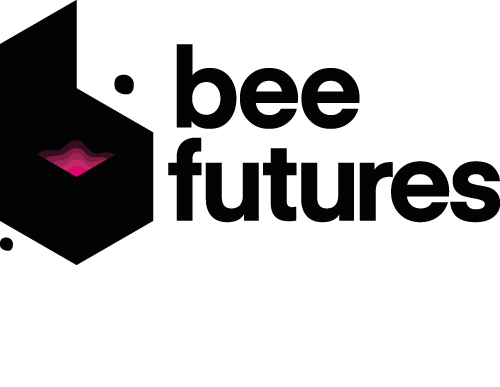Introducing a series dedicated to the ethical challenges of using Artificial Intelligence in beekeeping. We believe that AI-driven automation in this field can indicate an unprecedented direction of responsible innovation in the AgriTech industry. Therefore, to gain a deeper insight into the meaning and potential of these new tools, we will reframe the key concepts with which we understand them, starting from the notion of “natural” (or “unnatural”) innovation.
Issue 1: Introduction
Nowadays, companies like Beefutures are developing numerous technological solutions that can revolutionize the agri-food supply chain. Faced with the impressive demographic growth expected in the coming decades and the challenges presented by global warming, these technological innovations are undoubtedly necessary. However, it is not unusual to have some hesitation in accepting that our crops and livestock, that is, the “nature” we nourish ourselves with, should be managed by something as “unnatural” as an AI-driven robot. Yet, if we ask ourselves: “What is nature?” we find this question open to innumerable, even contradictory answers, and various technologies can claim the adjective “natural” precisely because of its vagueness. Think of synthetic meat, which can be seen as “natural” because it is produced without added chemicals such as antibiotics administered to livestock. Therefore, we need to specify what we mean when we talk about “natural”, and then assess whether it is desirable or not. In the case of new technologies for agriculture, and beekeeping in particular, this is a choice we can make as professionals and amateurs, but also as people simply interested in the health of our planet and the food on our table.
So, what about using Artificial Intelligence in beehives, especially in the case of AI-enabled automation? We can be certain that this technology cannot claim to be “natural” in the sense of using only organic materials in beehives, for instance. On the other hand, more precise monitoring of a hive’s data can reduce the beekeeper’s use of chemicals. At the same time, AI technology in agriculture represents a human intervention in nature and, in this sense, cannot be defined as “natural”. Nevertheless, since an AI-powered hive can adapt to the hive’s activity and respond autonomously to its data, it may be less invasive than continuous human intervention. Finally, equipping the bees with a new “intelligence” to manage their hive certainly does not respect the rhythms of nature, whereby this type of adaptive behavior could develop only through a slow natural selection. But we may ask ourselves whether it is really so virtuous to respect the rhythms of nature, when the rhythms of evolution take place over thousands of years, while today’s climate changes act as quickly as decades. Instead, is it not desirable to accelerate and direct the evolutionary process to preserve this species, which is indispensable to the well-being of the ecosystem and the health of the food production chain?
A new series of articles
Investigating from an ethical perspective what conception should be given to nature within technological innovation is not easy. However, another question may arise: does it truly make sense to pursue this task? To answer this question, we must briefly introduce the notion of “Responsible Innovation” (or RI), one of the European Commission’s main focuses since 2013. According to this idea, companies and research centers should integrate ethical values in the research and production of new technologies. Although individual moral values may vary in space and time, or be a source of endless discussion far removed from practice, research in RI structures their inclusion in the innovation process, giving secondary importance to which value is considered.
To give an example, one of the strategies developed for this task is Design for Values (DfV), which investigates how to integrate a given value into a technology already in the design phase. The research behind our article series is instead inscribed in another one: namely the Conceptual Engineering (CE) methodology. In CE, concepts are reformulated in such a way as to favor and promote a certain valuable practice in a specific field of use, for example, in the context of research and development. In the articles of this series, we will address and reframe different concepts relating to nature and technological innovation. We will try to foster the integration of shared values in the newest AgriTech solutions, such as the preservation and enhancement of the biosphere and a healthy food production web. In particular, we will focus on AI-driven innovation in beekeeping, such as hive automation, since this research is first and foremost a reflection by Beefutures on its own production process, and on its challenges and responsibilities.
If you want to delve into some other insights on the topic, take a look at the pre-print paper “Biomimicry and AI-enabled Automation in Agriculture. Conceptual Engineering for Responsible Innovation During Climate Change”, submitted to the Journal of Agricultural and Environmental Ethics (you can find the pre-print paper here). In it, you will also find the proposal on how to reformulate the innovation strategy known as ‘biomimicry’ (in which nature is a source of inspiration) in favor of the value of helping natural species keep pace with climate change. This will be summarized in the following articles in the series.
About the writer
Marco Innocenti is a researcher at Beefutures and a PhD candidate at the Panthéon-Sorbonne University and at the University of Milan, where he is part of “PhilTech – Research Center for the Philosophy of Technology”. He is a Visiting PhD candidate at the Philosophy Group at Wageningen University and Research (NL), among the world leaders in Agricultural and Environmental Sciences.
In his doctoral thesis in Ethics of Technology, he investigates how the possibilities opened up by AI-driven automation in beekeeping redefine the role and concept of ‘nature’ in Responsible Innovation. This reflection aims to indicate guidelines for ethical innovation in AgriTech R&D labs. In this series of articles, he summarizes his research for the interest of experts and enthusiasts in this field.



